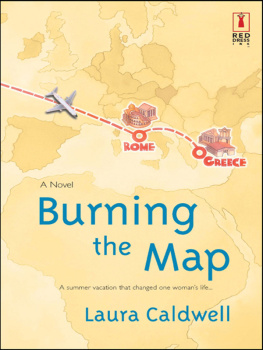Bruce J. Caldwell - Beyond Positivism
Here you can read online Bruce J. Caldwell - Beyond Positivism full text of the book (entire story) in english for free. Download pdf and epub, get meaning, cover and reviews about this ebook. year: 2015, publisher: Taylor and Francis, genre: Romance novel. Description of the work, (preface) as well as reviews are available. Best literature library LitArk.com created for fans of good reading and offers a wide selection of genres:
Romance novel
Science fiction
Adventure
Detective
Science
History
Home and family
Prose
Art
Politics
Computer
Non-fiction
Religion
Business
Children
Humor
Choose a favorite category and find really read worthwhile books. Enjoy immersion in the world of imagination, feel the emotions of the characters or learn something new for yourself, make an fascinating discovery.
- Book:Beyond Positivism
- Author:
- Publisher:Taylor and Francis
- Genre:
- Year:2015
- Rating:4 / 5
- Favourites:Add to favourites
- Your mark:
- 80
- 1
- 2
- 3
- 4
- 5
Beyond Positivism: summary, description and annotation
We offer to read an annotation, description, summary or preface (depends on what the author of the book "Beyond Positivism" wrote himself). If you haven't found the necessary information about the book — write in the comments, we will try to find it.
Beyond Positivism — read online for free the complete book (whole text) full work
Below is the text of the book, divided by pages. System saving the place of the last page read, allows you to conveniently read the book "Beyond Positivism" online for free, without having to search again every time where you left off. Put a bookmark, and you can go to the page where you finished reading at any time.
Font size:
Interval:
Bookmark:

Since its publication in 1982, Beyond Positivism has become established as one of the definitive statements on economic methodology. The books rejection of positivism and its advocacy of pluralism were to have a profound influence in the flowering of work on methodology that has taken place in economics in the decade since its publication. This edition contains a new preface outlining the major developments in the area since the books first appearance.
The book provides the first comprehensive treatment of twentieth century philosophy of science which emphasizes the issues relevant to economics. It proceeds to demonstrate this relevance by reviewing some of the key debates in the area. Having concluded that positivism has to be rejected, the author examines possible alternative bases for economic methodology. Arguing that there is no single best method, he advocates methodological pluralism.
Bruce Caldwell is presently Professor of Economics at the University of North Carolina at Greensboro. In 198182 he was a post-doctoral fellow at New York University and he has participated in numerous seminars on methodology and presented papers at the meetings of the American and Southern Economic Association and the History of Economics Society. He has also published papers on methodology in, among others, the American Economic Review, History of PoliticalEconomy, Southern Economic Journal and Journal of EconomicIssues.
Revised edition
Bruce J.Caldwell

First published 1982
by the Academic Division of Unwin Hyman Ltd
Third impression 1991
Revised edition published 1994
by Routledge
11 New Fetter Lane, London EC4P 4EE
Simultaneously published in the USA and Canada
by Routledge
29 West 35th Street, New York, NY 10001
Routledge is an imprint of the Taylor & Francis Group
This edition published in the Taylor & Francis e-Library, 2003.
1982, 1994 Bruce J.Caldwell
All rights reserved. No part of this book may be reprinted or reproduced or utilized in any form or by any electronic, mechanical, or other means, now known or hereafter invented, including photocopying and recording, or in any information storage or retrieval system, without permission in writing from the publishers.
British Library Cataloguing in Publication Data
A catalogue record for this book is available from the British Library
Library of Congress Cataloging in Publication Data
Caldwell, Bruce J.
Beyond positivism.
Includes bibliographies and index.
1. EconomicsMethodology. I. Title.
[HB131.C37 1984] 330.018 8325672
ISBN 0-203-56552-5 Master e-book ISBN
ISBN 0-203-56664-5 (Adobe eReader Format)
ISBN 0-415-10911-6 (pbk)
For my parents, Clyde and Maryann, who taught me by example that method and substance are often inseparable.
It is indeed a pleasure to be writing a preface for a new printing by Routledge of Beyond Positivism. The reprinting of the book suggests that recent interest among economists in methodological studies may be something more than a transitory phenomena.
The current situation is relatively new. I began working in the area of economic methodology as a graduate student in the mid-1970s. At the time it was a very underdeveloped field. There were no texts written for economists to explain the (then, mostly philosophical) issues that one would continually encounter in the widely scattered literature on economic methodology. Beyond Positivism was written in part to fill that gap: that is why Part One is devoted to a survey of those philosophical topics which seemed to me at the time to be of the most direct concern to economists interested in methodology.
In the course of my studies, it soon became apparent that a revolution of sorts had taken place within the philosophy of science. The bundle of doctrines that might loosely be labeled positivism had been overthrown, and no heir was apparent. As is shown in Part Two, a command over the earlier philosophical literature enables one to understand better the methodological writings of men like Lionel Robbins, T.W.Hutchison, Fritz Machlup, Milton Friedman and Paul Samuelson. But it was much less clear what set of doctrines might eventually replace positivism. My reaction to the disarray in philosophy is contained in Part Three. A kind of wait and see attitude, one in which toleration of alternative approaches and a readiness to engage in various forms of criticism, is endorsed there. I labeled this position methodological pluralism.
Beyond Positivism was first published in 1982 and reflects work undertaken in the preceding seven years. At the time I had little reason to believe that more than a handful of economists would share my interest in economic methodology. Virtually overnight, however, things changed. As the decade turned, a number of books on various aspects of the subject came into print (e.g., Blaug, 1992 [1980]; Katousian 1980; Hausman, 1981; Boland, 1982; Klant, 1984 [1979]). A research annual with the word methodology in its title appeared (Samuels, 1983). This was quickly followed by three edited collections of articles, a sure sign that at least certain publishers anticipated the formation of a viable market (Marr and Raj, 1983; Caldwell, 1984; Hausman, 1994 [1984]). Finally, in 1985 the journal Economics and Philosophy began publication. The growth of the field has been virtually logarithmic ever since.
As is evident from what has been said, a number of people contributed to the methodological renaissance. If one publication were to be singled out as having had the most influence, however, most would agree that it was Mark Blaugs The Methodology ofEconomics: Or How Economists Explain (1992 [1980]). This is my choice for a couple of reasons. First, Blaugs book was among the earliest of the group to be published. Because of his international stature as an historian of thought, he lent credibility to the field and thereby paved the way for the rest of us. Second, and perhaps even more important, Mark Blaug took a stand.
Blaug began his book (as I did mine) with a survey of the dissolution of the received view within the philosophy of science. His reaction to the death of positivism was different from mine, however. Though fully cognizant of the criticisms of prescriptivist approaches within the philosophy of science that had been advanced by writers like Thomas Kuhn and P.K.Feyerabend, Blaug nonetheless insisted that a prescriptive role for economic methodology was both feasible and desirable. The particular approach that he propounded borrowed from the ideas of Karl Popper and Imre Lakatos.
The reader will discover in my book a number of criticisms of Blaugs position, and more generally of the applicability of Poppers falsificationism to economics. I soon found that I was not alone in this opinion. Blaugs strong position in The Methodology ofEconomics helped to ignite interest in the field because it forced others to react to it. As a result, a significant strand of the literature within economic methodology in the past decade has focused on assessing the viability of the Popperian and Lakatosian frameworks (e.g., de Marchi, 1988; de Marchi and Blaug, 1991; Hands, 1993). The debate that has taken place has been rich and substantive, all in all a very Popperian affair (i.e., the critical process, if not perhaps its outcome, would be pleasing to Popper). One result is not in doubt: all parties seem to have gained a much deeper appreciation of both the strengths and the limitations of the Popperian and Lakatosian frameworks as they have been applied within economics.
Font size:
Interval:
Bookmark:
Similar books «Beyond Positivism»
Look at similar books to Beyond Positivism. We have selected literature similar in name and meaning in the hope of providing readers with more options to find new, interesting, not yet read works.
Discussion, reviews of the book Beyond Positivism and just readers' own opinions. Leave your comments, write what you think about the work, its meaning or the main characters. Specify what exactly you liked and what you didn't like, and why you think so.

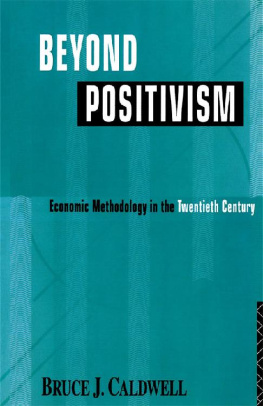

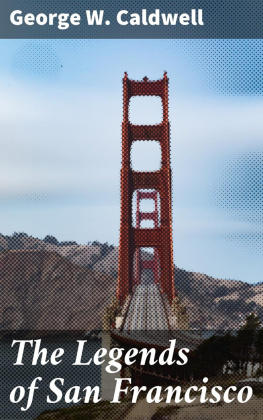
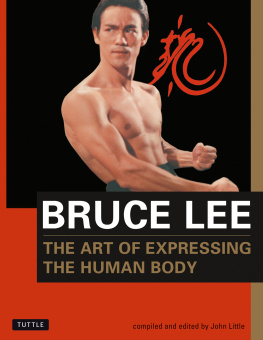

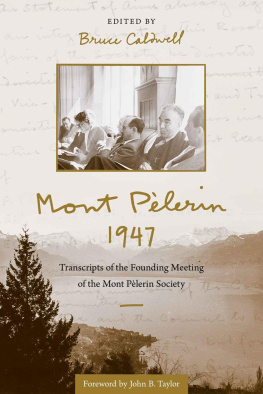




![Chloe Caldwell [Chloe Caldwell] - Women](/uploads/posts/book/114454/thumbs/chloe-caldwell-chloe-caldwell-women.jpg)

